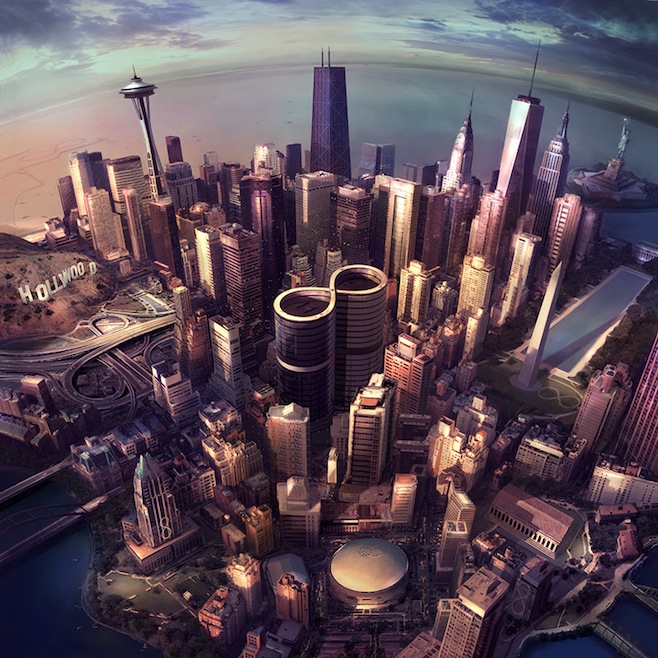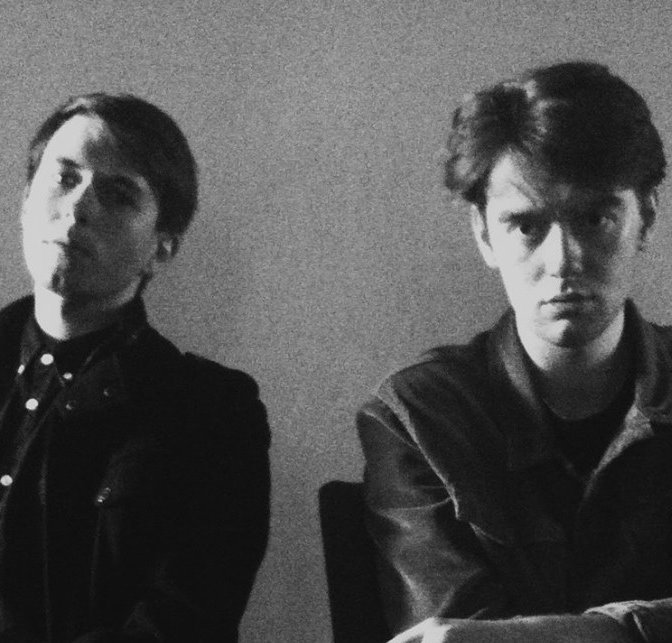
Having started from such humble beginnings, the Foo Fighters really have come a long way. Who honestly could have called it, that the drummer from that band where the lead singer killed himself would eventually become one of the more vital figures in mainstream rock? The thing about Dave Grohl is that the man actively seems to want us all to be better. He wants us to know about the bands and the sounds that shaped his music, partially to help us appreciate his records in a whole new light, but mostly to make sure that some of the more interesting characters don’t get lost in depths of history’s chasm. This is the central idea running through the Foo’s 8th album, Sonic Highways; 8 tracks, 8 different studios and 8 guests on the album. Each song is inspired by a city, and by the people and the sound birthed from that city. Conceptually, it’s a neat plan and, if done correctly, could force the band to write something really fantastic after 2011’s limp Wasting Light. Sadly Sonic Highways just doesn’t measure up.
One of the fundamental issues with the concept is that, in spite of the various studios and guests, there is no real variance in the sound or songwriting. The guestlist here includes Robin Zanderof Cheap Trick, Joe Walshof The Eagles and Tony “I Produced The Most Interesting Bowie Albums” Visconti, but you’d never know it. Most of them are relegated to backing vocals where they could have easily just been replaced by a double tracked Grohl. The lead single ‘Something From Nothing’ (or as I’ve taken to calling it ‘Something From Holy Diver’), which features Zander, has none of Cheap Trick’sflourishes, only cheap tricks from the Foos.The song was recorded in Steve Albini’s Electrical Audio studio; a veritable mecca for noise-rock and the home of Albini’s distinctive raw and unpolished sound. ‘Something From Nothing’ should feel like a long lost cut from In Utero, but instead it’s got the squeaky clean fingerprints of producer Butch Vigall over it, wiping away any and all grime and leaving only a hyper-produced shell. It’s a microcosm for the album because this song could have been recorded in any room anywhere in the world. It doesn’t belong to Chicago, nor does ‘Feast and The Famine’ belong to D.C. or ‘I Am The River’ belong to New York. One of the fundamental tenants of this concept has failed, leaving the whole endeavor in a state of flux as we’re left wondering what the point really was.
The album does come to life at one or two points. ‘Feast In The Famine’ evokes – albeit to a much lesser extent – that same kind of manic intensity of ‘Monkey Wrench’ from 1997’s The Colour and The Shape. The southern rock swagger of ‘What Did I Do?/God As My Witness’ has some very nice guitar work and a wonderful sense of Queen pomposity. But these are just single moments in a sea of forgetability. There is no track on this album that you’ll ever go back to. Everything just feels a little half baked; this is particularly evident in the lyrics which were, reportedly, finished minutes before being recorded. It really shows because Grohl has never been much of a wordsmith, but an unfortunate chunk of this record is a little too close to stilton for its own good. They just seem like placeholder clichés, designed to fill the space in the bar while the band worked on something a little better. They’re so meaningless and their presence really highlights that the band just didn’t put in the effort that was needed to make a great record.
Foo Fightersat this point have become the alternative rock AC/DC. Every couple of years they’ll put out another record which is mostly just an excuse to tour. This is just their Flick Of The Switch. I’m happy they’re still around and touring, because they have the back catalogue and the energy to be one of the best mainstream rock bands working today, although that might be damning with faint praise. It’s nice to see that they are trying and that the band actively seem to want the public to know about the DC hardcore scene or magic of Post-Katrina New Orleans. It’s admirable and does help to soften the blow of the music’s quality because, at its best, the record brings up memories of The Colour and The Shape and Foo Fighters, and at its worst it has the languid inertia of the worst cuts from disc 2 of In Your Honour and Wasting Light. With Sonic Highways it is clear that the boys are trying but evidently, they’re just not trying hard enough. Will Murphy





